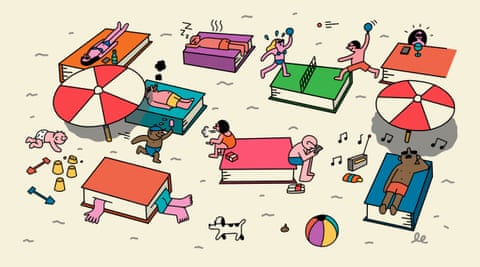Maggie O’Farrell
I loved Andrew Sean Greer’s Pulitzer prize-winning Less (Little, Brown) and I can’t think of a better book to stash in your suitcase. It follows Arthur Less – who keeps emphatically reiterating that he is absolutely not heartbroken by his boyfriend marrying someone else – from San Francisco to Japan, to Italy and back again. Like a rare diamond, Greer’s prose sparkles, illuminates and cuts. I’ve also just been sent an advance proof of some new Lucia Berlin short stories, Evening in Paradise (Picador). Any publication of hers is a major cause for celebration, as far as I’m concerned. I might have to feign illness to devote myself to them. I’m hoping to pick up a copy of Lauren Groff’s new novel, Florida (William Heinemann), before I head off to the Highlands next week; her last book, Fates and Furies, was a fascinating and febrile read. This one promises snakes, sinkholes and sisters, so I’m in.
Philip Pullman
Rupert Thomson is an astonishing writer, who should be far more celebrated than he is. His latest novel, Never Anyone But You (Little, Brown), is immensely surprising, fully imagined and totally original. We live in an age of wonderful science writing, and Carlo Rovelli’s new book, The Order of Time (Allen Lane), is an example of the very best. Time is something we think we know about instinctively; here he shows how profoundly strange it really is. Also, The Accident on the A35 by Graeme Macrae Burnet (Saraband): it’s a long time since I read a police procedural (more or less) that was so gripping and intelligent.
Lisa McInerney
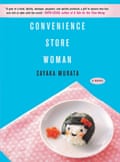
For literary refreshment, try the playful, artful Convenience Store Woman by Sayaka Murata (Portobello, translated by Ginny Tapley Takemori). For a properly sweltering read, you need One Star Awakeby Andrew Meehan (New Island), all gorgeous longing and hunger in Paris. Those who can’t sleep in the heat might find the ingeniously disquieting stories in Things We Lost in the Fire by Mariana Enríquez (Portobello , translated by Megan McDowell) apt. If I manage a couple of days off, I’ll head for Kerry on the Atlantic coast of Ireland and take Ten Arguments for Deleting Your Social Media Accounts Right Now
by Jaron Lanier (Bodley Head) and a recently delivered proof I can’t wait to get stuck into: Crimson by Greenlandic sensation Niviaq Korneliussen (Virago, translated by Anna Halager).
Mark O’Connell
If you like your holiday beach reads to include a measure of deep existential terror – and who doesn’t? – I am happy to point you toward Mariana Enríquez’s utterly brilliant short story collectionThings We Lost in the Fire (Portobello, translated by Megan McDowell). Instead of returning home with a tan, you will be likely to return home looking pale and haunted, and with your eyes sunken in your skull, but you will thank me for the tip. (Either that or you’ll curse me for it, it’s pretty much 50/50.) Perhaps even less appropriate a beach read is James Bridle’s book New Dark Age (Verso), an extraordinary, perceptive analysis of the various ways in which the rise of information technology has obscured, rather than illuminated, the operations of power in the world, and diminished our capacity to improve it. It’s brilliant and bracing. The two books I’m most excited to read this summer – almost certainly not on a beach, though you never know – are Olivia Laing’s Crudo (Picador), and Jacqueline Rose’s Mothers: an Essay on Love and Cruelty (Faber), which I’ve just started reading and am very much enjoying.
Nina Stibbe
Two recent favourites are memoirs that use other books to tell their story. Sally Bayley’s Girl With Dove: A Life Built By Books(Harper Collins) borrows voices and themes from literary classics (eg Jane Eyre, David Copperfield, Miss Marple, Milly-Molly-Mandy) to make sense of the strange goings-on in her own family. I highly recommend the author’s exuberant reading of the audiobook for the full effect of this beguiling, eccentric, funny memoir. In her joyful memoir Bookworm: A Memoir of Childhood Reading (Vintage), Lucy Mangan revisits our most beloved childhood books (Milly-Molly-Mandy crops up again), brings the characters of our collective childhood back to life and uses them – with great wit and wisdom – to tell her own story. Wonderful. Another book on the transformative power of books is Educated (Hutchinson), Tara Westover’s fascinating, jaw-dropping memoir of being raised by a survivalist scrap-merchant who doesn’t trust medicine, schools or dairy products, and tells the story of her determination to find knowledge. My summer will be spent at home, on the beaches of Cornwall, and a holiday read I’m looking forward to is Human Relations and Other Difficulties
– the collected essays (1972-2015) of Mary-Kay Wilmers (Profile), editor of the London Review of Books and my old boss.
Rupert Goold
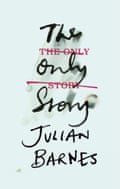
I spend my life in the third person watching characters shouting from the stage, so I’m most drawn to writers who show me something different or unusually personal with a whispering voice from the page. Julian Barnes’s completely devastating The Only Story
(Jonathan Cape) is as quiet and aching and intimate as a James Blake ballad. Rachel Cusk’s Kudos (Faber), the third in a breathtaking trilogy, is its polar opposite, voiceless, disconcerting, secretive and utterly modern. Finally, I’ll take John Fowles’s adolescent, deeply theatrical, classic The Magus (Vintage), which reminds me of being a teenager hoping to find holiday romance and instead seeking consolation in a book.
Jessie Burton
I’m enjoying books that present as memoir but with a beauty of prose that elevates them, so I adored Jean Hannah Edelstein’s phenomenal This Really Isn’t About You (Picador), a warm and witty account of finding your feet in the face of great loss. Andrew Hankinson’s You Could Do Something Amazing With Your Life (You Are Raoul Moat) (Scribe) is another gripper, a powerful literary experiment written in the voice of the killer. On a lighter note, for my trip to Los Angeles, I’m packing Cesare Pavese’s The Beautiful Summer (Penguin), with an introduction by Elizabeth Strout, a slender account of love in 1930s Italy, and 300 Arguments and Ongoingness: The End of a Diary (Picador) by Sarah Manguso, brimming with invaluable wisdom and elegance.
Iwona Blazwick
Holidays are for distraction-free immersion in books with heft. Artist Hito Steyerl’s Duty Free Art (Verso) is a dizzying and dystopian riff on the liquid capital that flows through the art world, the factoids manufactured by bots and our accumulation of digital debris. Counter that with Practice: Documents of Contemporary Art (Whitechapel Gallery), an anthology of essays on and by artists ranging from Marina Abramović to Gerhard Richter and their strategies for making, doing and resisting the virtual. A book that reads like magic realism but is entirely factual is Naples ’44 by Norman Lewis (Eland), a riveting and cinematic account of how Neapolitans dealt with siege and starvation – countesses transformed ballrooms into vegetable gardens or simply took to prostitution, and the cat population declined dramatically – while keeping up appearances. I will be in the Tuscan hills this summer and I am taking with me Shape of Light: 100 Years of Photography and Abstract Art (Tate) to inspire my own photographic experiments.
Evie Wyld

Melissa Harrison’s forthcoming All Among the Barley
(Bloomsbury) gets you in the first sentence and does not let go; I cannot recommend it enough. The Secret Barrister: Stories of the Law and How It’s Broken
(Macmillan) is an eye-opening, funny and horrifying look at the criminal justice system, perfect for reading sections out and disrupting the lives of those around you who are “just trying to have a nice time”. I also will take These Bones Will Rise Again
by Panashe Chigumadzi (Indigo), This Really Isn’t About You by Jean Hannah Edelstein (Picador), and Run, Riot by Nikesh Shukla (Hodder) with me for a week in a tent on the Isle of Wight.
Joe Dunthorne
I heartily recommend Who Is Rich? by Matthew Klam (Fourth Estate). It’s the funniest novel I’ve read in ages and one of the saddest. The narrator, Rich Fischer, a once somewhat famous cartoonist, will please anyone who likes their protagonists clever and deluded, hopeful and doomed. I also loved Kayo Chingonyi’s debut poetry collection, Kumukanda (Chatto & Windus). His poems are intelligent and moving and find the perfect balance between intricacy and directness. I’ve got lots of books I’m looking forward to reading on a beach in Gower: Flights by Olga Tokarczuk (Fitzcarraldo Editions, translated by Jennifer Croft), Hold by Michael Donkor (Fourth Estate) and Astroturf by Matthew Sperling (Quercus).
Patrick Gale
Anyone who endured their teens in the 1970s as I did will devour Nina Stibbe’s sequel to the equally delicious Man at the Helm. Funny, subversive and unexpectedly touching, Paradise Lodge (Penguin), just out in paperback, follows her heroine’s adventures when she bunks off school to work in an old people’s home ripe for Thatcherite reforms. I’m always banging on about the need to read more dead authors – they have nobody marketing their work and they’re cheap and usually brilliant. Please discover Sylvia Townsend Warner this summer. Her The Flint Anchor and The Corner That Held Them (Virago) are neglected comic masterpieces whose evocations of chilly East Anglian landscapes are the perfect balm for sunburn. I’ll get no holiday as I’ve a new novel out, but on my train journeys I’ll be reading Anne Enright in preparation for interviewing her at the North Cornwall book festival.
Geoff Dyer
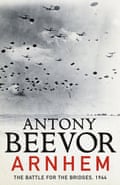
I’ll be in Berlin for most of July, heading there via – or at least in the company of – Antony Beevor’s Arnhem: The Battle for the Bridges, 1944 (Viking). Always worried that I have a book too few, I’ll also be lugging Lisa Halliday’s Asymmetry (Granta), Pond by Claire-Louise Bennett (Fitzcarraldo) and Iris Origo’s Tuscan diaries, War in Val D’Orcia (Pushkin). In the second world war, the Germans used 2.7m horses, of which 1.8m died. This is just one of many moving statistics in Ulrich Raulff’s unusual and stimulating history of – and elegy for – the last 100 years of our relationship with the equine world, Farewell to the Horse (Penguin, translated by Ruth Ahmedzai Kemp).
Curtis Sittenfeld
Who Is Rich? (Fourth Estate) by Matthew Klam is a terrific summer read – a cartoonist at an ocean-side artists’ conference ponders creativity, infidelity and his own existential purpose, and the results are hilarious and bracingly intelligent. A similarly artsy but more sober read is the essay collection How to Write an Autobiographical Novel (Mariner) by Alexander Chee. Chee’s insights about writing, love and activism are hard-won, honest and incredibly wise. I can’t wait to get my hands on the new novel When Katie Met Cassidy (Piatkus) by Camille Perri. I’ve heard it’s sexy, entertaining and subversive, and doesn’t that sound like a magnificent combination? I plan to read it while visiting my sister in Providence, Rhode Island.
Kerry Hudson
This summer I’m fulfilling a long-held ambition to explore the mountains and cities of the Republic of Georgia by their marshrutka countrywide minibus network. On a trip that is mainly travel, I want books that will inspire me, that are humane and thought-provoking. After reading the first outstanding story, I’ve been impatiently hoarding Glen James Brown’s debut, Ironopolis (Parthian), a series of interconnected tales set on a dilapidated Middlesbrough council estate. Likewise, Mary O’Hara’s Austerity Bites (Policy Press), which reports on the frontline of austerity cuts, a book sadly as relevant today as when it was first published four years ago.
Ocean Vuong
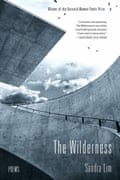
The Wilderness (WW Norton) by Sandra Lim is a knife blade fashioned into a magnifying glass. Oscillating between bold declarations and restrained, seething fury, the poems slowly build to a storm in the psyche. The book is a masterclass in line-making and metaphor. It lifts me, like the best books, higher into myself. “When I come to the right place, I believe I’ll paint a door on it and / walk right through.” I’ve also been struck by Scott McClanahan’s The Sarah Book (Tyrant). It is the epitome of autofiction – and advances the tradition to include images and photographs. But more than that, it is the first book I’ve read in a while that faithfully enacts Kafka’s truism that a book must be an axe that shatters the frozen seas inside us. Brutal and unforgiving, it explores a crumbling marriage and its ensuing existential crisis through the lens of the West Virginian working class. A classic of urgent, American storytelling.
Josie Rourke
Sally Rooney’s award-winning novel, Conversations With Friends (Faber), is one of the best debuts I’ve encountered. It’s a witty and entrancing read, perfect for a summer’s day spent doing nothing else. I’m hoping to visit friends in the Hudson Valley this summer; I first need to finish editing my film Mary Queen of Scots – which is based on John Guy’s biography of Mary Stuart, My Heart Is My Own (Harper). For my summer reading I will dive into Stephen Greenblatt’s new book, Tyrant: Shakespeare on Politics (WW Norton). I love his mission to invigorate settled ideas, and it’s good preparation for the next play I’m directing, Measure for Measure at the Donmar, London.
Sebastian Faulks
I have enjoyed The Incurable Romantic (Little, Brown), in which psychotherapist Frank Tallis opens his casebook. There have been quite a few such books recently, most of them overpraised and not as well written as their admirers claim. But Tallis writes with clarity and wit about the morbid condition of love, which emerges here as a kind of mental disorder. I have some misgivings about patient confidentiality and exaggeration and/or light fictionalisation in places (Tallis has form as a horror novelist), but this is undoubtedly riveting stuff.
Attica Locke
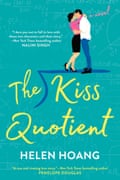
I’ve just put down The Kiss Quotient (Atlantic) by Helen Hoang and I loved it so much I want to hand it out to strangers on the street. It’s a beautiful love story and a peek inside the life and heart of a woman who has Asperger’s or high-functioning autism. I was mesmerised by this book, which manages to be steamy hot and sweet at the same time. An American Marriage (Algonquin) by Tayari Jones is another incredible love story, though fraught with greater challenges for the couple at the centre, which makes the story all the more moving. Jones’s prose is chock-full of lyricism, grace and wisdom. You will never forget the story of Celestial and Roy. Unfortunately, there are no grand travel plans for me this season. My summer “holiday” will be stolen moments in my favourite reading chair.
Sabrina Mahfouz
I read The One Who Wrote Destiny (Atlantic) by Nikesh Shukla, a beautiful, brilliant modern classic, cover to cover on one long-haul flight – take tissues! And Mr Loverman (Hamish Hamilton) by Bernardine Evaristo is the funniest book I’ve read this year, but also one of the saddest. Every character makes a perfect holiday companion. My summer travels are all work-related this year – Wales, Suffolk, Edinburgh and Cairo – so to see me through the trains, planes and buses, I’ll be packing When I Hit You (Atlantic) by Meena Kandasamy, Grime Kids (Orion) by DJ Target, Elsewhere, Home (Telegram) by Leila Aboulela and Things Bright and Beautiful (Penguin) by Anbara Salam.
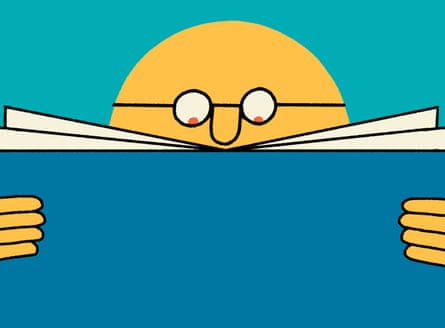
Carol Morley
Sara Baume’s A Line Made By Walking (Windmill), about Frankie, who retreats from urban life and connects with nature, really made an impression on me this year. A fun and breezy read was Charlotte Bingham’s memoir MI5 and Me: A Coronet Among the Spooks (Bloomsbury), an account of her discovery that her father was a spy and of her own “inactive” service. Go Went Gone (Granta, translated by Susan Bernofsky) by Jenny Erpenbeck, looking at the plight of asylum seekers as told through a retired university professor, I found very moving. My dream holiday reads include The Overstory (William Heinemann) by Richard Powers, an eco epic, with trees at the heart of the storytelling, and Ling Ma’s Severance (Macmillan), a brilliant-sounding post-apocalyptic novel, centring on the end times of late capitalism. I’ve been learning to swim this year, and while I’m in Paxos practising my strokes, I’ve accumulated some books with swimmers on the covers, and top of the pile to read is Turning: Lessons from Swimming Berlin’s Lakes (Virago) by Jessica J Lee.
Niven Govinden
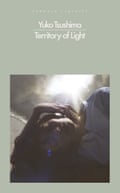
I recommend Territory of Light (Penguin, translated by Geraldine Harcourt), Yuko Tsushima’s stories of marital disappointment, parenthood and loneliness following a separation in 70s Tokyo. It’s unflinching and brings to mind Elena Ferrante’s early work. Caryl Phillips’ novel A View of the Empire at Sunset (Vintage), about the becoming of Jean Rhys, fully inhabits the despair of damp prewar London and stifling colonial society abroad. Edouard Louis’s History of Violence (Harvill Secker), detailing a sexual attack and its aftermath, is shocking, but also tender in its examination of class difference and queer desire. Books I’m packing for Arles include Annie Ernaux’ s The Years (Fitzcarraldo Editions, translated by Alison L Strayer), Will Ashon’s forthcoming Wu-Tang epic, Chamber Music (Granta) and Nikesh Shukla’s The One Who Wrote Destiny (Atlantic).
Mark Kozelek
I’ve been travelling over the last month and I’ve been bouncing back and forth between books during my travels. The first is called Iron Ambition: My Life With Cus D’Amato (Sphere) by Mike Tyson and Larry Sloman. I’m a fan of Cus D’Amato, who also trained world champions Floyd Patterson and José Torres. I’m also reading Nietzsche for the first time, partly because Cus had Mike reading Nietzsche at 15 years old. I’m halfway through Thus Spake Zarathustra (Wordsworth, translated by Thomas Common) and will admit I can’t make head or tail of some of it. I think the book is telling me to believe in myself, to think at a higher-than-average level, and to not get bogged down with petty things. Ideal holiday reading.
Suzanne O’Sullivan
Anybody who wants a real treat must read Martina Evans’s Now We Can Talk Openly About Men (Carcanet). Full of insight and humour, it tells the story of two women’s lives in Ireland during the civil war. As a poet, Evans’s ability to choose just the right word is unerring. I also highly recommend Maggie O’Farrell’s I Am, I Am, I Am (Tinder), a memoir that rivals the beauty of her novels. My own summer holiday will be spent in Sweden doing research for a book. While there, I plan to reread some old favourites – starting with Tom Wolfe’s The Electric Kool-Aid Acid Test (Vintage).
Julie Myerson
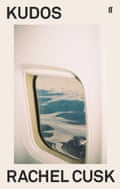
Rachel Cusk’s Kudos (Faber) is one of the most astoundingly original and necessary books I’ve ever read. It made me laugh, think and cry. She’s my friend, but I recommend it without apology: I envy anyone who hasn’t read it yet. I was startled, but also very moved, by the almost abrasive directness of Rose Tremain’s memoir Rosie (Chatto & Windus). It did exactly what memoirs ought to do: made me want to rush straight back to her fiction. My ideal holiday (a bit of a fantasy at the moment) would therefore be a fortnight in Rome with all of Tremain on a Kindle, along with John Updike’s Rabbit (Penguin) quartet – which people have been ordering me to read for years – as well as Motherhood (Harvill Secker) by Sheila Heti, which I’ve been hoarding, and Never Anyone But You (Corsair) by the unfailingly brilliant Rupert Thomson.
Nicola Barker
I know it sounds a little sad, but I tend to get really excited when I receive the Polity Press’s new catalogue. They publish so much clever, challenging and fascinating stuff. Over the summer I plan to read Alain Corbin’s A History of Silence (Polity). Corbin writes sparely, beautifully and with an exquisite fastidiousness about, well… something and nothing: quiet. In the first chapter he recommends George Rodenbach’s The Bells of Bruges (Dedalus, translated by Mike Mitchell) and Max Picard’s The Flight from God (St Augustine’s Press). I intend to consume all three of the above, at home or on trains, in an atmosphere of gentle reverence.
Viet Thanh Nguyen
Luis Alberto Urrea’s The House of Broken Angels (Little, Brown) is a great American novel, if we understand “America” to be all of the Americas, including Mexico. It’s profane, funny and moving. Sayaka Murata’s Convenience Store Woman (Portobello, translated by Ginny Tapley Takemori) takes a universal space, the convenience store, and turns it into the setting for a darkly comic (and very short) novel about alienation and identity in an urban, capitalist society. Alexander Chee’s How to Write an Autobiographical Novel (Mariner) is a collection of essays about race, writing, politics, queerness and sexuality that is urgent and insightful. I’ll be in Paris for much of the summer, and I’ll be takingÉdouard Louis’ The End of Eddy (Vintage, translated by Michael Lucey), Leila Slimani’s Lullaby (Faber), Han Kang’s The Vegetarian (Portobello), Min Jin Lee’s Pachinko (Head of Zeus), Lisa Ko’s The Leavers (Dialogue) and Jenny Zhang’s Sour Heart (Bloomsbury).
Philip Hensher
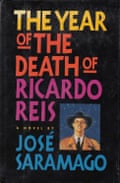
This year, I’m packing José Saramago’s novels - I’ve only just got round to him, and I’m knocked out by the worldly precision and the combination of substance and grandeur. The Year of the Death of Ricardo Reis (Vintage, translated by Giovanni Pontiero) was a revelation, and I’m looking forward to the half dozen more now in a pile. The two new novels I really want to take away are both by favourite Australian authors: Michelle de Kretser’s The Life to Come (Allen & Unwin) and Tim Winton’s The Shepherd’s Hut (Picador). They’re both writers of wonderful freshness and energy. Just right for two weeks’ retreat at an Austrian health farm, to fit in between forest walks, massages, advanced treatments and 650 exquisitely tantalising calories a day.
Viv Albertine
One of my favourite books this year was Nine Island (Catapult) by Jane Alison, which is funny and wise and such a closely observed account of a single woman’s life during her time living in Florida. It’s so vividly described that I didn’t read it as fiction, which shows how good a writer Alison is. Her protagonist J’s reflections on sex, love and other people are so unapologetic and honest, I felt less alone and freakish while reading the book. Another that had me in its grip, due to her insightful and direct voice, was Kudos (Faber) by Rachel Cusk. Cusk has a piercing intellect but demonstrates it through perspicacity, not by showing off on the page. I came to the graphic memoir Persepolis (Pantheon) by Marjane Satrapi via my 19-year-old daughter. It is set in Iran around the Islamic revolution when the author is 10. We accompany her through her gradual awakening to politics, love, oppression and the complexity of families – and her drawings are enchanting. I am going to Hastings, East Sussex, for a week’s course at the art school. The books I’ll take with me are Motherhood (Harvill Secker) by Sheila Heti, and Zadie Smith’s new collection of essays, Feel Free (Hamish Hamilton).
Nikesh Shukla
Ponti (Picador) by Sharlene Teo is a sultry, hilarious dissection of mother-daughter relationships, and the effect of time and teenagehood on friendships, against the backdrop of Singapore B-movies. It oozes confidence. On Michael Jackson (Granta) is Margo Jefferson’s excellent, empathic take on the singer, encapsulating the pressures of being a child star, the most famous person on the planet and having a complicated legacy that can sometimes make people forget about the music. Meanwhile, Crudo (Picador) by Olivia Laing is a hot and heavy look at post-Brexit Britain through the eyes of newlywed Kathy as she summers in Italy. It’s Olivia Laing’s fiction debut and is very much a self-assured interrogation of the times we live in. James Smythe’s I Still Dream (Borough) is his most accomplished work – a past, present and future of AI, which is as human as it is otherworldly, and utterly engrossing. I am going to east Devon and will be taking the short story collection Heads of the Colored People (Chatto & Windus) by Nafissa Thompson-Spires, the memoir This Really Isn’t About You (Picador) by Jean Hannah Edelstein and Londoners (Granta) by Craig Taylor.
Paul Morley
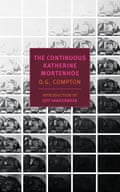
Don Paterson’s wonderfully learned The Poem: Lyric, Sign, Metre (Faber) is pure joy for footnote freaks and those who like to get high thinking about thinking. Not so much about how to be a poet as how to be in a poem, or even be a poem, it also works as a great book about music. DG Compton’s The Continuous Katherine Mortenhoe (Gateway), written in 1974, coolly anticipated society being occupied with reality TV, and continues its journey from depicting an imaginary world to approaching nonfiction. I’ll be in Lisbon, switching between Shirley Collins’s All in the Downs (Strange Attractor) and Lamont Hawkins’s Raw: My Journey Into the Wu-Tang Clan (Faber), to see what they have in common. I’ll also be taking a handful of those nourishing one-pound Penguin Modern classics so I can go on holiday with George Orwell’s Notes on Nationalism, Albert Camus’s Create Dangerously, James Baldwin’s Dark Days, Kathy Acker’s New York City in 1979 and Samuel Beckett’s The End.
Hera Lindsay Bird
This summer I’m going to Krakow for a residency and I’m taking The Idiot (Vintage) by Elif Batuman, a brain-meltingly funny Bildungsroman about communication breakdowns in the dawn of the internet era. I’ve already read it twice, but can’t bear to be without it. I’ll also be taking See What Can Be Done (Faber) by Lorrie Moore, my favourite short-story writer’s collected nonfiction, and The New Animals (Victoria University Press) by Pip Adam, the breakthrough New Zealand novel of 2017, which is about the generational divide, the fashion industry – and I can’t say more or I’ll ruin the ending. It’s ambitious, compulsive and strange as all hell.
Liv Little
I’m going to New York and Lisbon this summer and I’m going to reread Maya Angelou’s The Heart of a Woman (Virago). I like these simple stories of people’s lives and experiences. The book gives you an insight into the intelligent, passionate woman that Angelou undoubtedly is. I will also take Edith Jackson (Puffin) by Rosa Guy. I have a really old library copy. It’s a story documenting the life of one girl in America with more than her share of life’s challenges. Nicole Dennis-Benn’s Here Comes the Sun (Oneworld) was the first Jamaica-set book I read. As a Jamaican woman, that was really exciting. It follows three women: two sisters and their mum. The older sister is navigating sexuality and being a queer woman, the younger is battling identity, being a darker-skinned girl, bleaching. It’s really addictive.
Sunny Singh
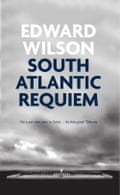
I’m heading to Savoie in the French Alps. I’m taking South Atlantic Requiem (Arcadia) by Edward Wilson, one of my favourite spy novelists, and I Hid My Voice (Abacus, translated by Sanam Kalantari) by Parinoush Saniee, an Iranian novelist, which is about a patriarchal family that is symbolic of the Iranian regime. I’m rereading George F Kennan’s Realities of American Foreign Policy (WW Norton). Written in 1954, it feels relevant again, given what’s happening now between the US and Russia. I’d also recommend Princess Bari (Periscope, translated by Sora Kim-Russell) by South Korean author Hwang Sok-yong and Thinner Than Skin (Jacaranda) by Uzma Aslam Khan, a Pakistani-American novelist. Both are wonderful in so many ways.
Alex Preston
I’m just back from the inspirational Worlds festival at the National Centre for Writing, Norwich. I came away laden with books and have already finished three of them. The Swan Book (Constable) by Alexis Wright is a devastating dystopian vision of a future Australia. I thought Behold, America (Bloomsbury) by Sarah Churchwell both brilliant and painfully timely, while Panashe Chigumadzi’s These Bones Will Rise Again (Indigo) is an extraordinary and thrilling history of Zimbabwe, culminating in the overthrow of Robert Mugabe. If you holiday anywhere near water, do take along the newly reissued edition of Charles Sprawson’s classic Haunts of the Black Masseur (Vintage). I’ll be rereading it between swims in Hydra in Greece.
Sharon Olds
Peter Carey’s A Long Way from Home (Faber), Ian Brown’s The Boy in the Moon and Zadie Smith’s essays Feel Free (Hamish Hamilton) would all make perfect holiday reading. Meanwhile, my own stack of summer books include The Unaccompanied (Faber) by Simon Armitage, Untitled (Mainstream) by Carol Ann Duffy, The Bonniest Companie (Picador) by Kathleen Jamie, Jackself (Picador) by Jacob Polley and Don’t Call Us Dead (Chatto & Windus) by Danez Smith. I’ll be carrying these gorgeous volumes back and forth between my New York City apartment and my old farmhouse upstate.
James Graham

Anyone who has the slightest interest in politics has to read Tim Shipman’s Fallout (William Collins), the follow-up to his thrilling referendum account, All Out War. Holidays may be about escapism, but this fly-on-the-wall unravelling of the 2017 election is car-crash exhilarating. For a made-up thriller, though, I enjoyed returning to the world of George Smiley in John Le Carré’s A Legacy of Spies (Penguin) in an age when the global distrust of the cold war feels unnervingly prescient. I’ve also been deeply moved and inspired by Didier Eribon’s Returning to Reims (Allen Lane, translated by Michael Lucey), having missed the stage adaptation at the Manchester international festival last year. It’s an autobiographical account of the young gay author’s journey back to his working-class, industrial French town.
Celeste Ng
The stories in Neel Patel’s If You See Me, Don’t Say Hi (Flatiron) are perfect bitesize morsels for the beach, travel legs or quiet moments. Mackenzi Lee’s Gentleman’s Guide to Vice and Virtue (Harper Collins)is a giddy whirlwind romp of a love story; I can’t wait for the forthcoming sequel. Rebecca Solnit’s Hope in the Dark (Canongate) is an argument for continuing to take action, even when everything feels uncertain, and will send you back home from holiday ready to carry on. I’m going to London with my family, and bringing Ta-Nehisi Coates’s Between the World and Me (Text), Justina Ireland’s Dread Nation (Balzer & Bray) – zombies plus the American civil war plus a fierce female fighter – and an advance copy of Edward Carey’s forthcoming Little (Aardvark Bureau), about the girl who grows up to become Madame Tussaud.
Jackie Kay
I’d recommend the recently republished Faces in the Water (Virago) by Janet Frame. She’s a true original, her work is a joy to return to, and it never ages. Kintu by Jennifer Nansubuga Makumbi (Oneworld) is a great, big, roaring Ugandan epic that follows the trials and tribulations of the Kintu clan from the 1750s to today. I’m taking poetry, too: it travels light and packs a punch. I’ll include Us (Faber) by Zaffar Kunial, a poet whose work thrills me, who makes you return to the origins of things, places, language and people again and again. He’s a poet who takes traditions seriously but makes of them something entirely new – a must. I’m taking Gerda Stevenson’s fabulous Quines (Luath) – the old Aberdonian word for women – which takes us through a vivid, moving history of outstanding Scottish women in poetry. It’s a groundbreaker of a book, rich and resonant, strong of voice. I’m going to go back to Eigg, an inspiring island run by its own people, and I’ll daytrip to Muck and Canna just cos I canny not.
Maria Balshaw

My first recommendation is The Wood: The Life and Times of Cockshutt Wood (Doubleday) by John Lewis Stempel. It is a glorious evocation of the rhythm and dynamism of an English woodland, connecting us to a much longer timeframe: a needed balance to the working, urban lives most of us have. My second is Audre Lorde’s Your Silence Will Not Protect You (Silver), the collected essays of this important poet, writer and intersectional feminist. It is a book of our times, not least because it reminds us that current issues of gender, race and power have been being contested, here in incandescent and penetrating prose and poetry, since the 1960s.
I will be spending my summer break being very quiet indeed in the Kent countryside. I shall take a pile of books including Stuart Hall’s Familiar Stranger: A Life Between Two Islands (Penguin), the posthumous memoir by this vital cultural theorist; Colm Tóibín’s The House of Names (Viking); Nan Shepherd’s The Living Mountain (Canongate); and Chimamanda Ngozi Adichie’s Purple Hibiscus (Fourth Estate). I’ll also be remembering Manchester, my home until last year, with Dave Haslam’s wonderful biography, Sonic Youth Slept on My Floor (Constable), and rereading Ursula Le Guin’s The Left Hand of Darkness (Gollancz) and Margaret Atwood’s The Handmaid’s Tale (Vintage), to feel again their potent, timely power.
Olivia Laing
The Stopping Places: A Journey Through Gypsy Britain (Chatto & Windus) by Damian Le Bas is the perfect accompaniment to any holiday in the British Isles. It maps a secret world, and made me want to live outdoors, at least for a summer. I’m going to Folegandros in August, and I plan to take Lara Pawson’s jagged, stunning meditation on war, violence and love, This Is the Place to Be (CB Editions). I’ve read it once and it was like drinking lightning; I can’t wait to rip through it again.
Guy Gunaratne
This summer I’m staying home so I’ll be reading around current erratic obsessions, mostly translated fiction and Trump. The recently published Call Me Zebra by Azareen Van der Vliet Oloomi sounds mad and tricksy. Moroccan writer and film-maker Ahmed Bouanani’s The Hospital, a short hallucinatory novel is appearing for the first time in English translation by Lara Vergnaud. Also, Mistaken Identity by Asad Haider, which deals with class and race post-Trump, and I’ve been eagerly awaiting new translations of Brazilian writer Machado de Assis. A new complete collection will be published later this month translated by Margaret Jull Costa and Robin Patterson.
Browse the books featured in this article at the Guardian Bookshop and save up to 25%. Visit guardianbookshop.com or call 0330 333 6846.
What books are you reading this summer? You can share your selections with us, either in this form or on twitter @Guardianbooks, by 10am BST Monday 9 July.
This article includes content hosted on unknown. We ask for your permission before anything is loaded, as the provider may be using cookies and other technologies. To view this content, click 'Allow and continue'.
